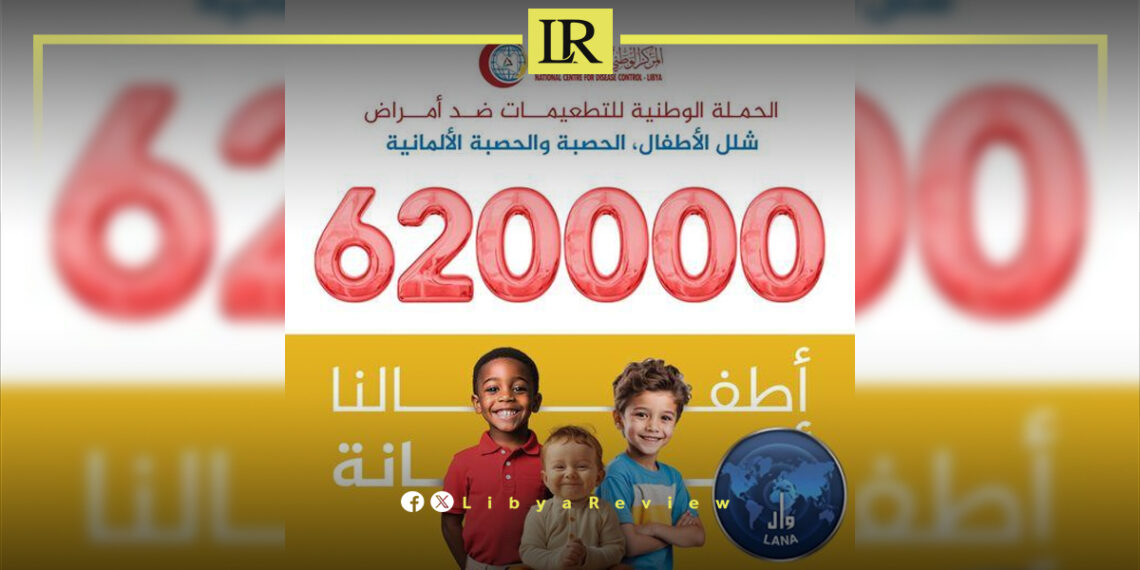On Saturday, Libya’s National Center for Disease Control (NCDC) announced that over 620,000 children have been vaccinated as part of the country’s National Immunization Campaign.
This critical initiative, targeting children aged one day to six years, aims to protect them from serious illnesses such as polio, measles, and rubella.
In a statement, the NCDC confirmed that none of the vaccinated children experienced any severe side effects, countering rumors about the safety of the vaccines. The campaign, which began last Saturday, was initially set to conclude on Thursday but was extended by two days, making Saturday the final day for parents to vaccinate their children.
This campaign marks an important step forward in Libya’s efforts to rebuild its healthcare infrastructure. Vaccination programs are essential to controlling preventable diseases, especially in a country recovering from years of conflict and economic challenges.
Polio, while eradicated in Libya, continues to pose a global threat. Maintaining high vaccination rates is crucial to ensuring that the disease does not resurface. Similarly, measles and rubella remain dangerous, potentially leading to complications such as pneumonia, brain inflammation, or death in severe cases.
A key challenge for the NCDC during this campaign has been addressing vaccine misinformation. Rumors surrounding the safety and efficacy of vaccines had caused concern among some parents, but the NCDC has worked tirelessly to counter false claims.
The campaign’s success also underscores the resilience of Libya’s healthcare sector. Despite logistical difficulties and resource limitations, the vaccination drive demonstrates a collective commitment to public health.
With the campaign ending on Saturday, the NCDC has urged parents who have not yet vaccinated their children to visit their nearest healthcare centers. This effort is crucial to ensuring that as many children as possible are protected from life-threatening diseases.
The NCDC continues to call on families to fulfill their responsibility in safeguarding the health of their children, reminding them that vaccinations are a critical step in building a healthier, more secure future for Libya’s younger generations.


